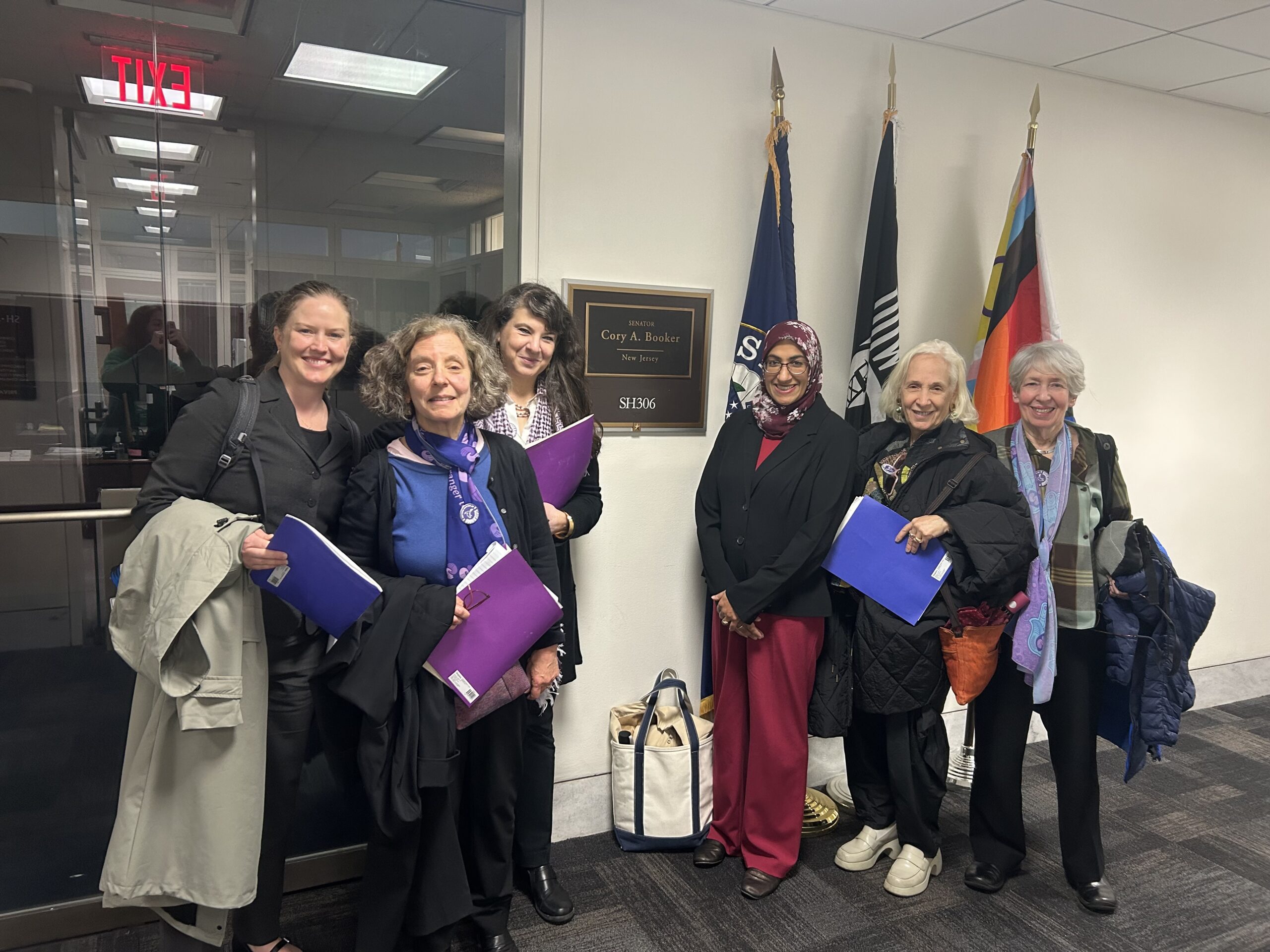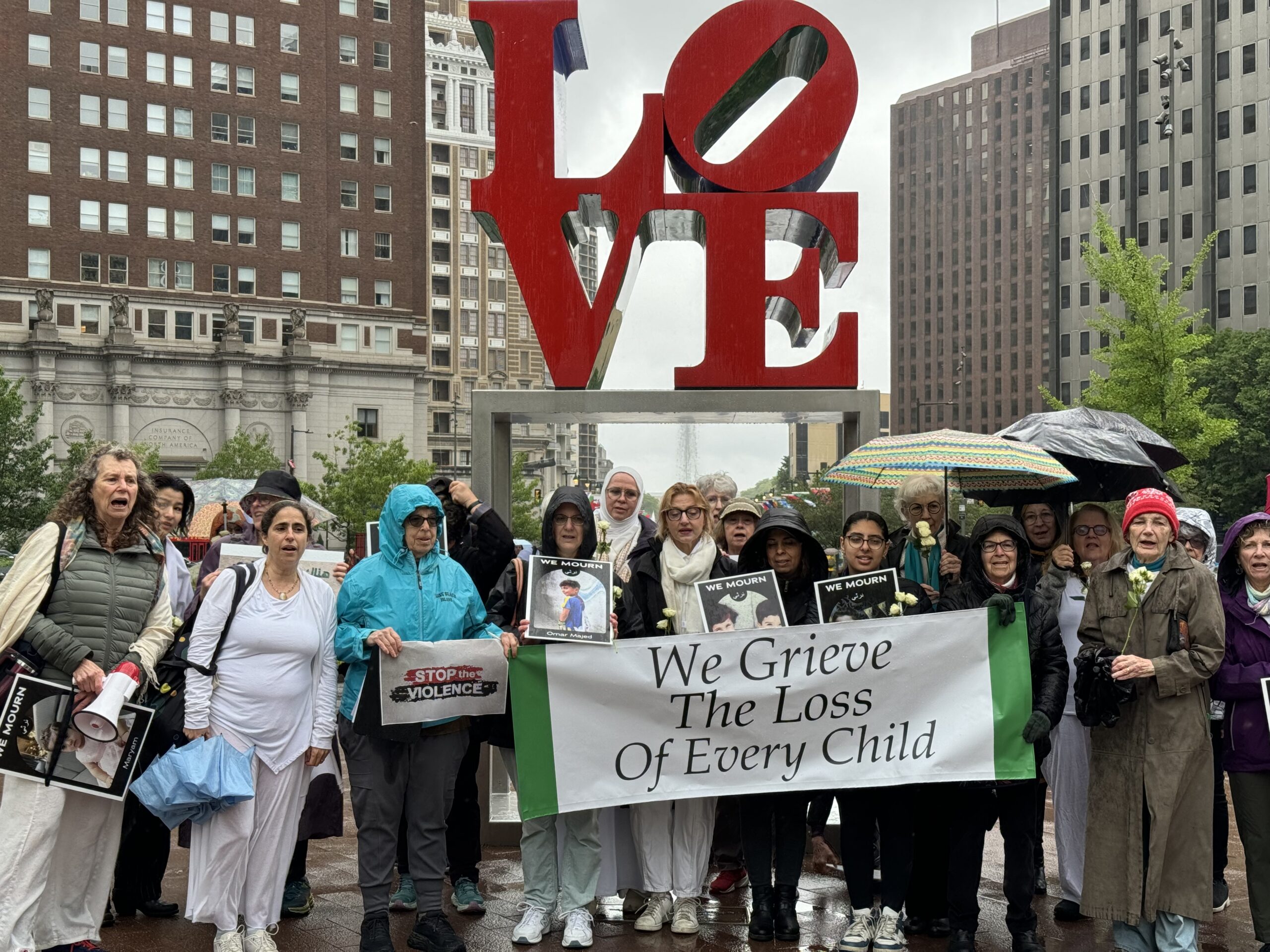Sisterhood of Salaam Shalom: Welcoming the Sacredness of Presence
In a world often fractured by fear, conflict, and othering, the women of the Sisterhood of Salaam Shalom gather not in mosques, temples, or boardrooms — but in each other’s homes. Over laughter and vulnerability, through stories of heartbreak and resilience, Muslim and Jewish women sit in warm conversation and hope. What begins in living rooms becomes a spiritual practice: the sacred act of building trust and community where history and politics would otherwise divide.
Founded 15 years ago by Atiya Aftab, a Muslim attorney and educator, and Sheryl Olitzky, a Jewish activist moved by a visit to Auschwitz, the Sisterhood is more than an interfaith nonprofit. It’s a growing network — a movement — of over 5,500 women across 170 chapters in 32 states around the U.S., united by a mission to “harness the power of connection to bridge differences, honor shared humanity, and foster interfaith collaboration.” In other words, the simple but radical premise is that healing begins with relationships, and sacred relationships form through a quilt of vulnerability, faith, and unwavering love.
The Sisterhood’s gatherings are not about theological debate or political consensus.
They are grounded by something deeper: the spiritual conviction that peace, salaam, and shalom, through sisterhood and friendship, is a shared calling. One that must be lived, embodied, revered, and protected. Especially when current events or the state of the world make that effort feel herculean.
Despite the prevailing stories of religious and political division, the Sisterhood is committed to standing up for each other and combating anti-Jewish and anti-Muslim bigotry through its relationship bridges.

For Aftab and Olitzky, the idea of a women-led, Muslim-Jewish sisterhood was less strategic and more the result of longing. Aftab had grown weary of the unproductive, male-dominated interfaith dialogues that focused more on doctrine than on practice.
As a member of her mosque’s board and chair of the Center for Islamic Life at Rutgers University, Aftab says she had previously participated in interfaith projects but found them uninspiring. “My experience with interfaith work was less than meaningful, very male-centric,” Aftab recalls. “Men coming into the room, talking about religion in a very academic and theological way.”
Olitzky had returned from a trip to Poland, where she visited Auschwitz, with a new urgency — grief-stricken and haunted by history’s echoes in contemporary Islamophobia and antisemitism. When the two women met, it wasn’t politics or religion that drew them together. It was shared pain. And shared purpose. The idea of sisterhood blossomed as they recognized the kindred in each other.
Both agreed that this space would be for Muslim and Jewish women, as communities that, in America, exist at the uncomfortable and sometimes dangerous intersection of minority identity and inherited trauma.
“We agreed it would be only Muslim and Jewish because we are both minorities in America. We felt we had very similar challenges in being minorities,” says Aftab. “We had our platform. We were going to be a woman-only organization. We agreed that the issue of Israel and Palestine was not going to be brought up initially, which we perceived to be a challenging topic before we built a level of trust.”
The pair intentionally decided not to host gatherings in places of worship. There would be no formal pulpits and no opening statements. Just the intimacy of shared meals, the comfort of informal chatter, and the humility of allowing others to see the real contours of your life.
“We were going to be different,” Aftab says. “Grassroots. We were going to open up our homes. Because there’s a sense of vulnerability when you open your home. People see how you are living when they come to your home.”
“Women navigate relationships very differently. We chat; we’re going off-topic about our children, the weather, and so on. We believe that’s an asset. It’s our turn. And we need to stand up,” says Aftab. “And many women, for many reasons — like cultural patriarchy — don’t own their space. We need to own the space. We belong at that table. We don’t need to be asked. Enough is enough.”
Initially, they avoided the topic of Israel-Palestine. This was not intended to suppress, but to protect the budding trust that was developing between two religious communities, both striving to center the sacredness of relationships for the betterment of humanity and the world.
Major events, however, challenged their initial commitment to avoid more challenging or divisive subject matter. The world kept knocking at the door, demanding entrance into the conversation. As tensions across the globe flared — from evolving rhetoric leading up to the first Trump presidency and antagonism at the U.S.-Mexico border to violence in Gaza — the Sisterhood found itself at a threshold. Could they hold the complexity? Could they love across divides? Could sacred relationships withstand emotional views that sharply contrasted?

After three retreats to contend with these questions, in February 2020, the board issued its first statement on the topic (which was updated in June 2023). The Sisterhood has since trained 40 facilitators to help navigate difficult conversations, and it maintains a vibrant focus on the Israel-Palestine issue. The organization has also sponsored several educational programs and conversations that explore the topic.
From the beginning, Aftab says her deep Muslim faith guided her participation.
“According to the Quran, when you look at the world and see injustice, there are three things you can do. First, do something with your hands. Second, if you can’t act, speak up. Third, the weakest form is just to hate what you see being done.”
These women didn’t just design a networking group or a new nonprofit. They built altars of relationship, where prayer, lament, contemplation, and celebration exist concurrently and are welcome together. This honesty enables the depth of their connections.
What began as hospitality evolved into holy practice. For many in the Sisterhood, showing up at each other’s homes, stories, and sorrows became its own sacred ritual. A spiritual discipline of returning to love, even when the world gives reason to fear. Even when events seem to demand hate.
Aftab admits that she has also had moments when her commitment to the organization felt challenged. “But what kept me going is my faith. God is the best of planners,” Aftab says. “You do your stuff, you plant your tree, and God is the one who is responsible for the results. Keep taking your steps. Keep doing your work. But the results are not in your hands. That faith value guides me.”
Rabbi Nancy Fuchs Kreimer, an involved Sisterhood member who joined the board in 2010, leans into advocacy and activism. Like Aftab, Kreimer says she also turns to her faith for strength and support, especially Judaism’s strong heritage of welcoming immigrants and refugees and resisting tyrants.
“The Torah repeats 36 times, you were strangers in the land of Egypt,” Kreimer says. “You know the heart of a stranger. Do not oppress the stranger. Love the stranger.” The Torah teaches us to remember what it means to be a stranger in a foreign land. To make space and to refuse to let fear harden the heart. By centering the loving kindness and deep presence within spiritual practice, we can live those teachings.
Kreimer’s Sisterhood chapter is called Sisters Waging Peace. When she received a request to join the Sisterhood, she accepted it immediately. The name and mission aligned with her life’s work as an early participant in Muslim initiatives and a professor emeritus with four decades of interfaith experience.
“I became really, really committed to this work. It’s incredibly important,” says Kreimer. “Current events have only made it more so. What the whole sisterhood is about is the opportunity to think in context and then go back into our community and share.”
Together, the Sisterhood turns to spiritual practices as lifelines. Some may gather and pray — Muslim women facing east, Jewish women lifting psalms in Hebrew. Others may lean on the ritual of lighting candles, sharing sacred texts, or the simple act of removing shoes before entering another woman’s home. These practices, while distinct, repeat the same truth: this space, this convening, is holy. And so are you. It’s a shared reverence for the Sacred from which every religious tradition flows.
Even in the most tumultuous, splintering moments — after October 7, during the global pandemic, amidst generational trauma — the Sisterhood chooses to stay in a sacred relationship. As women claim their space and their inherent value, they honor lament without accusation and conviction without erasure. While these painful events decreased membership, many more remained. Not because it was easy but because it was sacred.

“This is an organization about life,” says Kreimer. “We believe life is precious. We believe in humanitarian aid. We believe in medical solutions. We believe in political solutions. We don’t believe in violent solutions. We have a lot of Muslims and Jews who still believe this.”
Originally an organization meant only for Muslim and Jewish women, the Sisterhood now welcomes allied women of other faiths or no faith affiliation.
“Our voice is so needed. We are not pro-Israel. We are not pro-Palestine. We are pro-nonviolent solutions,” says Kreimer. “I have never felt it is more important to be doing interfaith work than it is right now. Because none of us is going to be free until we’re all free.”
In March 2025, members of the Sisterhood stood on the floor of the U.S. Senate. Muslim and Jewish women, in alignment, offering a different direction and more sacred power: relational and grounded in love.
“We are all one humanity.” Says Aftab. “We have to figure out how to live in peace. Not causing destruction, chaos, or instability. This is where faith is not the divider. It’s the politicians and weaponization of faith that is the problem. While I face challenges as a minority — a Muslim, half-brown, an immigrant, I am also a U.S. citizen, half-white, educated, with a lot of privilege. I am going to stand up and act.”
Faith and spirituality, they’ve found, isn’t a problem to be solved. It’s the ground they stand on when the winds rise. It is the steady rhythm of returning to each other, again and again, when politics and current affairs try to split them apart. The sacred lives not just in the words the Sisterhood speaks but in how they show up. How they stay — for each other.
What might change in the world if we saw dialogue not as debate but as devotion? What if the most radical act of interfaith collaboration for a more loving world is not agreement but an honest, committed presence?
By Theresa Coty O’Neil